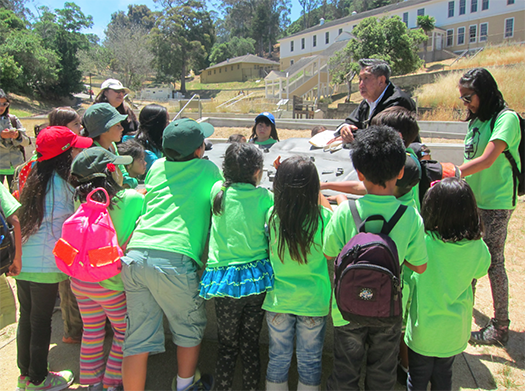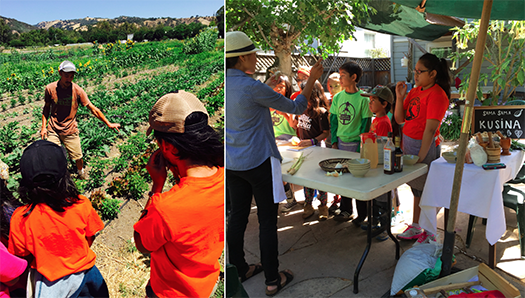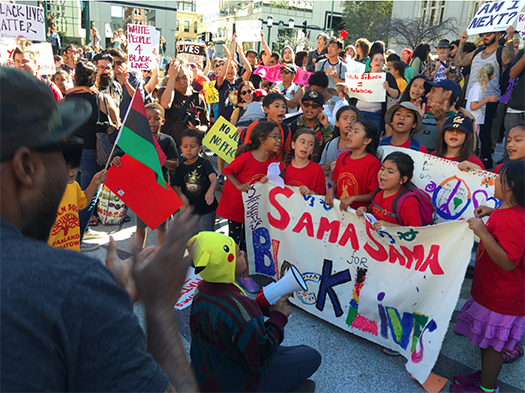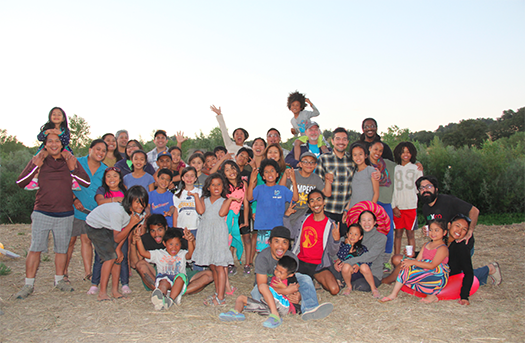A few years back, my 8-year-old son, a voracious reader, asked if there were books he could read about Filipino and Filipino American history. I was secretly thrilled at his request but after searching for age-appropriate materials and looking in our own collection of books, it was disappointing to find there wasn’t much out there. Around the same time my 4-year-old daughter began Philippine dance classes. It was inspiring to see young children, mostly 2nd and 3rd generation Filipino Americans, exposed to their cultural heritage through traditional folk dances. I bookmarked these experiences in my head hoping that one day my kids could learn and experience Filipino and Filipino American culture in a nurturing environment with a deeper understanding of their place in the diaspora.
With over 3 million Filipinos in the United States and tens of thousands that migrate each year, Filipinos represent a substantial and ever-growing diaspora in the U.S. Yet, we continue to be invisible to the majority of America. We have little political representation—there has only been one Filipino American elected to the California Legislature, in a state that contains the largest population of Filipinos living in the U.S. Our children’s history books are absent of the long and contentious history of American imperialism in the Philippines or the contribution of Filipino farmworkers in the successful fight for farmworker rights in California. Filipinos are seldom represented in popular media or sports. As a survival mechanism, Filipino immigrants have become masters of assimilation at the cost of losing language, culture and history. It is within this context that a group of us came together to envision a different path for our young people.
In January 2014, over a brunch of fried rice, ensalatang talong and atsara (eggplant salad and pickled papaya), a group of five Filipina-American mothers gathered, to discuss the idea of creating a children’s Filipino arts & ecology summer camp. Seeing limited opportunities for our children to explore Filipino and Filipino American language, culture, and history with a lens that challenges dominant hegemony, colonialism and imperialism, we were inspired to create an alternative educational space. With diverse experiences in art, education, environmental justice, science, and community organizing, we reached within our networks to find other families who would commit to making our vision a reality. Twenty families quickly stepped up to participate.
Sama Sama, meaning “all together” in Tagalog, brings together the cultural resources of the Filipino and Filipino American community of the Bay Area to create a unique and engaging four-week summer camp for children and families. With an emphasis in language immersion, pre-colonial and indigenous arts, and ecology, our program takes a multidisciplinary approach and nurtures a healthy sense of self as a vital part of the Philippine diaspora.
Working as a cooperative, Sama Sama provides the foundation for our children to understand community building and community learning. The cooperative model requires collective action and engagement of parents, children, grandparents and community members. An alternative economic model, the cooperative builds on the resources of our community and fosters collective ownership and sense of self-determination. Families learn to be resourceful and creative to meet their community and family’s needs.
Why a camp with an emphasis in ecology, you might ask? So much of our culture and history is based on our relationship to the land and sea. The Philippines is primarily an agrarian-based society with much of the population living as farmers and fisherfolk. Our creation stories across the archipelago are inspired by the abundant natural resources of the islands. The Tagalog creation story of Malakas at Maganda tells of the first people to emerge from kawayan (bamboo). The first large wave of migrants from the Philippines to the U.S. were farmworkers, working the fields and fishing boats from Hawaii to Alaska, up and down the fields of the California central valley. The relationship of a farmer or fisherfolk to the land and sea is rich with wisdom. They understand the rhythms of the season, the cycles of growth and regeneration of natural resources, and the complex interconnectedness of living things. This is the legacy that is important for us to share with our children—one that is rooted in a symbiotic relationship to the land and builds an ecological awareness critical for future generations.
Each summer, the camp theme cycles through the four elements—earth, air, wind and fire—coupled with a relevant subject, such as migration, resistance, life and liberation. The idea that the curriculum would be anchored in elements came from the children and their fascination with a popular animation called Avatar.
Our first summer we chose “Water and Migration” to base our curriculum. Activities were centered around our families’ migration stories, our relationship to water as descendants of island dwellers and water as a fundamental resource. The campers went on several field trips a week to get them out in nature and build relationship to the land around them. The first field trip we took was to Angel Island to learn stories of migration.
Taking the ferry to Angel Island was a treat for the campers. A few of them had never been on a boat or ferry before. Guiding us through the Angel Island Immigration Station was a very special docent, a grandfather of one of our campers whose parents and siblings entered the U.S. through Angel Island from China. Our visit to the island and his personal stories provided the perfect backdrop to discussing the “push and pull” factors of migration.

Following the Angel Island trip, we visited bangka (canoe) carvers in Sonoma County. Bangka Journey is dedicated to reviving the traditional practice of bangka carving. Several activity stations were set-up so that campers could learn carving and sanding and make miniature bangkas. The field trip ended with a collective dance around the bangka that told the story of the relationship of the forest to the bangka.
The theme of “Land & Life” in year two traced the origins of Filipino foods, their ingredients and the adaptation of traditional Filipino recipes that came with migrating to non-tropical environments. Campers visited several local organic farms and immersed themselves in cooking traditional Filipino dishes. Cooking has been by far the most popular activity among the campers. Three days out of the week, campers cooked lunch and merienda (snack) for the whole camp. The recipe was taught in Tagalog and English and campers recited the instructions in Tagalog.

This year marks the third year of Sama Sama camp. Thanks to an ACTA Living Cultures grant, we have been able to strengthen our program’s language component by building capacity among our bilingual teaching staff.
With the overarching theme of “Fire & Resistance,” teachers and campers probed the question “What is worth fighting for?” Campers spent the summer immersed in our community’s rich history of struggle and resilience from stories about the Katipunan (Filipino freedom fighters) to local campaigns against displacement in San Francisco.
Eskrima, a Filipino martial art form, was introduced as a traditional form of resistance and protection. Campers were drilled daily in eskrima technique, which proved to be an effective method for vocabulary acquisition. The movement, counting, instructions and commands provided repetition in an engaged way.
A key concept central to this year’s camp was pagkakaisa (solidarity). The importance of standing with others to fight against injustice was especially resonant as many of our campers identify with being bi-cultural or mixed-race. Applying the lesson of pagkakaisa, campers and their families participated and led part of a family march for #BlackLivesMatter.

As we enter a period where the political climate looks unfavorably upon the contributions of immigrant communities, it is imperative that we come together. Sama Sama continues to be a place for community building and an alternative learning space for our young people to challenge the dominant narrative and build upon our ancestor’s stories of resistance and resilience. Since joining Sama Sama, campers have expressed a growing understanding of their Filipino heritage and demonstrate pride in their Filipino identity. Parents have also found a niche of like-minded families tapping into culture as a source of strength while raising critical thinkers. Recently, the grandmother of one of our campers explained, knowing who you are, your culture and your history is key to knowing where you are headed. This is at the core of Sama Sama—the power of culture to define our future.

